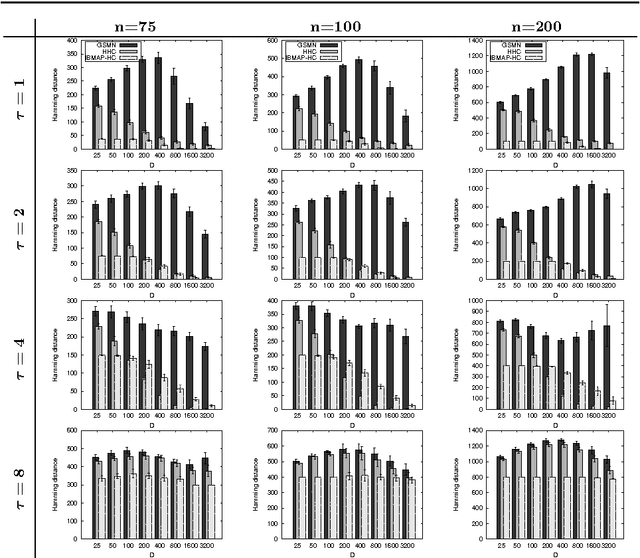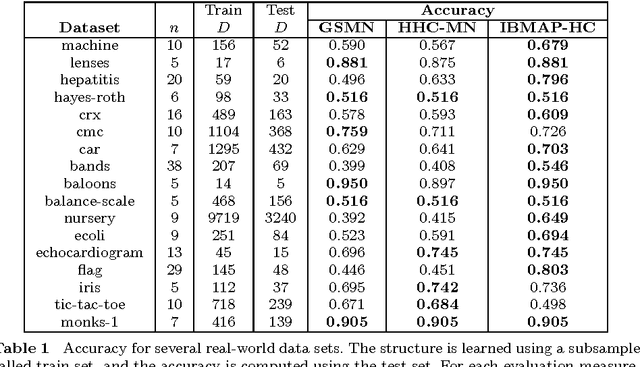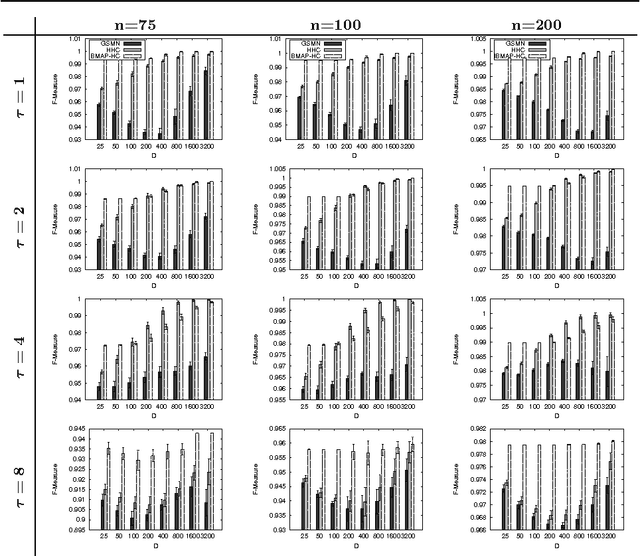The IBMAP approach for Markov networks structure learning
Paper and Code
Feb 25, 2014



In this work we consider the problem of learning the structure of Markov networks from data. We present an approach for tackling this problem called IBMAP, together with an efficient instantiation of the approach: the IBMAP-HC algorithm, designed for avoiding important limitations of existing independence-based algorithms. These algorithms proceed by performing statistical independence tests on data, trusting completely the outcome of each test. In practice tests may be incorrect, resulting in potential cascading errors and the consequent reduction in the quality of the structures learned. IBMAP contemplates this uncertainty in the outcome of the tests through a probabilistic maximum-a-posteriori approach. The approach is instantiated in the IBMAP-HC algorithm, a structure selection strategy that performs a polynomial heuristic local search in the space of possible structures. We present an extensive empirical evaluation on synthetic and real data, showing that our algorithm outperforms significantly the current independence-based algorithms, in terms of data efficiency and quality of learned structures, with equivalent computational complexities. We also show the performance of IBMAP-HC in a real-world application of knowledge discovery: EDAs, which are evolutionary algorithms that use structure learning on each generation for modeling the distribution of populations. The experiments show that when IBMAP-HC is used to learn the structure, EDAs improve the convergence to the optimum.
 Add to Chrome
Add to Chrome Add to Firefox
Add to Firefox Add to Edge
Add to Edge